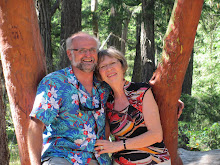We have just commemorated Remembrance Day – a time for remembering. With respect we remember the more than 110,000 Canadians who lost their lives in wars ion the past century – some heroically, some in utter fear and loneliness, all tragically, in their pursuit of peace.
It is also a time for remembering the harshness and brutality of wars in which they and 55 million others have died. It’s a time to remember the devastation, the grief and suffering, the pain and agony that war brings. There is nothing glamorous about war (although we tend to glamorize the technology of our western war machines). War of any kind always leaves its carnage of death and destruction.
Remembrance Day is a time to reflect on why wars are still being fought. For me it’s a time to also remember our Anabaptist forbears who were martyred for their faith, the conscientious objectors who were ostracized for their pacifism during WW II and all those across the globe who continue to encounter sufferings for reasons of faith and conscience.
It’s a time to remember our children, and all the children who would like to grow up in joy and hope and peace. It’s a time to resolve to work for peace and justice with peaceable methods.
Remembrance Day is also a time for re-examining what Jesus Christ and the cross, the resurrection and the power of prayer have to say to all forms of violence. Jesus calls us to live by the law of love and to practice the forgiveness of enemies, as Jesus Himself exemplified for us. He is the Prince of Peace - the answer to human need, enmity and violence.
Peace is a treasured word. It’s an agreement to end hostilities between two dissenting groups. It’s the absence of conflict, an inner calmness. It is not a natural characteristic of persons, governments or nations. Ideas clash, desires conflict, goals create tensions, words produce battles, passions blaze into fights.
We may excuse ourselves for any involvement in a national or global conflict. But within our own little world there are conflicts and battles. They may be visible with vocal and physical participation. They may be “cold wars” between non-speaking persons, between persons carrying grudges, resentments, hostility and hate towards each other.
For there to be peace on a global or national or community or home level there must first be a personal peace. I’m reminded of the Chinese Proverb that says:
If there is righteousness in the heart there will be beauty in the character.
If there is beauty in the character there will be harmony in the home.
If there is harmony in the home there will be order in the nation.
If there is order in the nation there will be peace in the world.
The Bible says “..the kingdom of God is…righteousness, peace and joy in the Holy Spirit, because anyone who serves Christ in this way is pleasing to God and approved by men. Let us therefore make every effort to do what leads to peace and to mutual edification.” Romans 12:17-19
Peace-making begins with righteousness in the heart. Jesus points out the problem of man’s sorrows and this world’s condition has to do with our heart– it’s sinful. Jesus said “It’s from within out of man’s hearts, come evil thoughts, sexual immorality, theft, murder, adultery, greed, malice, deceit, lewdness, envy, slander, arrogance and folly.” (Mark 2:21-22) We need a transformed heart.
Where does peace come from? The Bible declares that man is at enmity with God. Jesus Christ came as the Prince of Peace to bring about a peaceful resolution to the enmity that separates man from God. He paid the supreme sacrifice – dying in our stead on the cross. He paid the penalty our sin demanded. Now we can have peace with God through faith in Christ (Romans 5:1). God replaces the un-rightness in our heart with His righteousness and gives us personal peace. His power enables us to work at being a peace-maker in our homes, community and nation.
Peace-making is an expression of our love for God and others and is pleasing to God. Jesus called peacemakers “blessed” in His sermon on the mount. (Matthew 5:9). We need to be a peace-maker, not a trouble-maker. Christ will help us to work to resolve issues. Righteousness in the heart produces a beautiful character.
Peace-making begins at home. Is your home a shelter of peace or a storm center of bitterness and anger? Peace-making requires effort. “Let us therefore make every effort to do what leads to peace...” (Romans 14:19).
“Don't hit back; discover beauty in everyone. If you've got it in you, get along with everybody. Don't insist on getting even; that's not for you to do. "I'll do the judging," says God. "I'll take care of it." Our Scriptures tell us that if you see your enemy hungry, go buy that person lunch, or if he's thirsty, get him a drink. Your generosity will surprise him with goodness. Don't let evil get the best of you; get the best of evil by doing good.” (Romans 12:18-21 The Message)
Friday, November 13, 2009
Subscribe to:
Comments (Atom)
